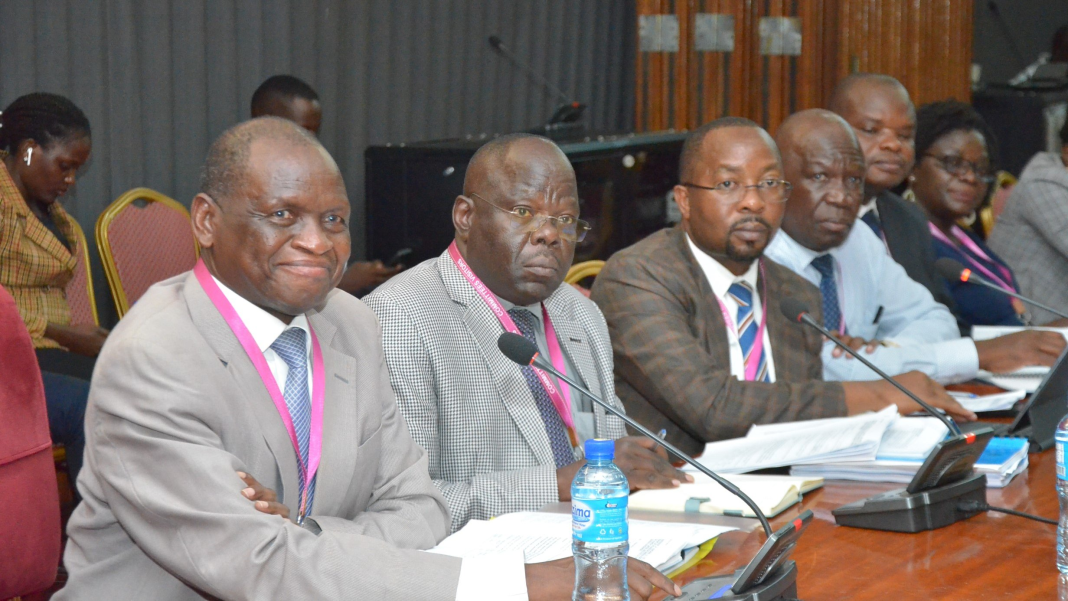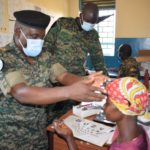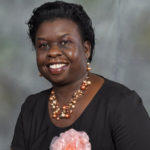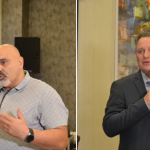The officials at Uganda Cancer Institute have opposed appeals by parliament to stop charging patients seeking services at the private wing, saying the revenue collected from these patients is used for maintenance of equipment since the money provided by the government for this activity is not enough.
The officials made the remarks while meeting with legislators on Parliament’s Public Accounts Committee to scrutinize the December 2023 Auditor General’s report, where auditors had queried the low revenue collections in 2022/23, with the Institute having projected to collect Shs4.5 billion, but only collected Shs3.37 billion.
Dr. Jackson Orem, Executive Director, Uganda Cancer Institute noted, “Even if government gives us that Shs4.5 billion, there is still going to be need because cancer treatment is uniform internationally so that means, even if you are a rich or poor person, the standard of treatment that you are getting is the same. So even if you gave us that Shs4.5 billion, it is still not going to make a very big difference.”
Dr. Orem’s remarks were in response to a question raised by Muwanga Kivumbi (Butambala County) who questioned why Uganda Cancer Institute continues to operate a private wing, yet only Shs4.5 billion is collected in revenue, wondering if the Institute would be comfortable at having these funds incorporated within the Institute’s budget by Government, to enable the facility offer free services to all Ugandans.
Muwanga remarked, “You generate Shs4.5 billion and your budget is Shs48 billion and the services offered are a public good because my understanding is that the poor are subsidizing for the rich who go in the private wing because for the Shs48 billion, it is collected from all of us. So, my small money goes to finance the rich man and I can’t access the private wing, so, is it comfortable for you if we added the Shs4.5 billion on your budget and you say, we no longer charge anything?”
Dr. Orem highlighted that Cancer is a very impoverishing condition that majority of the people who come to the institute actually, they come when they do not have money. Even the rich and people of middle class, initially when they come, they want to be in the private services, but they cannot even last three months in the private services. They revert to the general wing.
“All cancer patients are equal and despite the fact that we have a few people who want exclusive services, even those we subsidize them, the only thing they are getting in the private wing apart from a few investigations, is the space that has ambiance,” explained Dr. Orem.
He added, “There is a need to revisit what private service is in the Ugandan context. Although we are calling it private services, literally what we are providing is called cost sharing. So, if at all the Government is interested in investing in the Institute to provide private services, the market is immense. Because of the investment that we have, we are attracting so many people coming from the neighbouring countries. 20% of the patients who are enjoying services at the Institute are now foreigners and they get free drugs,”
Dr. Nixon Niyonzima, Head of Research and Training at the Uganda Cancer Institute said that private wing services include; Admission fees- Shs100,000 charged per night, consultation fees-Shs50,000 per visit, laboratory blood tests-Shs10,000, ultrasound-Shs10,000, X-ray-Shs30,000, CTScan-Shs200,000 to Shs300,000 and this is charged depending on the organ the patient wants, but patients in both general and private wing receive free drugs.
He also said the Institute charges for Radiotherapy services and in case a patient is doing one for the advanced techniques, the charge is Shs1.4M for the entire radiotherapy period that lasts six weeks and defended the need to charge patients.
“Part of the reason we collect NTR is to ensure that our equipment is maintained, we have a very small budget for maintenance of equipment and most of the money we get from NTR is for maintenance of equipment. We actually need more support from the Government, we still have many gaps that are unfunded,” Niyonzima defended.
Susan Amero (Amuria DWR) reacted saying, “There isn’t a single day that I have gotten a tablet outside Uganda for free, so why are these people benefitting from our taxes that we are paying, stressing the meager resources that we are having? What are you people doing? Why do you give them free treatment because that money should be the NTR spent on some other things to look after Ugandans after all, the facility is here and money is paid by Ugandans? Why should it be free for everybody and yet those who go out pay a cost, so why are you offering free services for foreigners?”
However, Dr. Orem defended the Institute noting, “The foreigners who are coming, a good number of them are members of the East African Community and we don’t have a framework within which we should charge them so that means, whatever Ugandans are getting, that is what they also get.”
Amero however, rejected Dr. Orem’s explanation saying when Ugandan MPs contracted #Covid-19, during the East African Legislative Assembly games, those without insurance would not get services from Arusha.
“If you need to subsidize East Africans, it should be clear that there is a subsidy for East Africans, but they must pay. They aren’t Ugandans, they don’t pay their taxes here. There is nothing that you get outside Uganda for free. We shouldn’t give priority to foreigners and then we stress the resources and fail to look after our own people who are suffering to pay heavy taxes here, that can’t be. Something has to be done,” added Amero.








